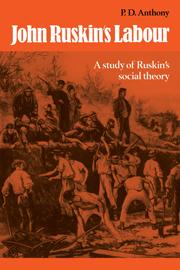Summary
There is only one Ruskin. Not only has there been no writer like him in the English language but his work presents a unity which has not always been recognised. It was a convenient failure of recognition for those Victorians who chose to idolise the aesthete and to ignore the prophet of social doom. Ruskin recognised this distinction amongst his readers and protested that he would write no more pretty prose because ‘many people thought of the words only and cared nothing for their meaning’ so that he would write in future with great plainness.
His safer work in art and architectural criticism was republished in popular editions and given as school prizes. His social criticism was republished by the revolutionary anarchist William Morris and copied out by hand by working readers. He also smarted at the sneer (a sexual sneer) at the gentle refinement of his style: ‘I'm not going to let them have any more fine “language” to call me a “mad governess” for.’ It was easy to say that there were two Ruskins, easier still as the divisions seemed to occupy different parts of the writer's life. The division could be made to coincide with his tragic madness. The aesthetic Ruskin was young, brilliant and sane. The social Ruskin was old, morose and mad. Ruskin's work itself does not always suggest unity. His writing was sometimes prolix in style, and occasionally bewilderingly ill-directed in intention.
- Type
- Chapter
- Information
- John Ruskin's LabourA Study of Ruskin's Social Theory, pp. 9 - 28Publisher: Cambridge University PressPrint publication year: 1984



